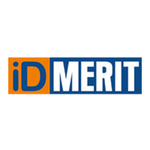Top Identity Verification Softwares
Identity Verification software plays a crucial role in ensuring security and compliance in digital transactions. It helps businesses confirm the identity of users and maintain the integrity of their services. This software leverages various technologies such as biometrics, document verification, and machine learning to authenticate users quickly and efficiently. Implementing Identity Verification ... Read More
37 companies found
Product Description
Twilio is a software platform that helps businesses communicate with their customers more effectively by integrating messaging, voice, video, and authentication capabilities directly into their applications. If you’ve ever received a text update from your favorite store or had a customer service call to resolve an issue, there’s a good chance Twilio was working behind the scenes. Businesses can u... Read More
Users
- • No Data
Industries
- • No Data
Market Segment
- • No Data
Product Description
IDMerit is a software company that specializes in providing identity verification solutions for businesses. Their platform aims to help companies of all sizes securely and efficiently verify the identities of their customers and partners. With IDMerit, businesses can easily integrate identity verification into their processes, ensuring that they comply with regulatory standards and reduce the ri... Read More
Users
- • No Data
Industries
- • No Data
Market Segment
- • No Data
Product Description
When it comes to verifying identities online, Onfido makes the whole process straightforward and reliable. It’s a software that helps businesses confirm a person’s identity using a mix of document verification, facial biometrics, and other checks. This makes it easier for companies to confidently onboard new customers while ensuring security. Imagine you run an online business and need to confirm... Read More
Users
- • No Data
Industries
- • No Data
Market Segment
- • No Data
Product Description
SheerID is a software designed to make verifying customer identities simple, particularly for businesses that offer exclusive discounts or benefits. Imagine you're offering special deals to students, teachers, military personnel, or other specific groups – SheerID helps you figure out who fits those categories without any guesswork. In the past, businesses had to rely on customers providing thei... Read More
Users
- • No Data
Industries
- • No Data
Market Segment
- • No Data
Product Description
In a world that's increasingly digital, verifying identities quickly and reliably is more crucial than ever. That’s where Trulioo comes in. Trulioo is a software that simplifies the process of confirming who people and businesses really are. Whether you’re running a financial service, an online marketplace, or any different type of online platform, Trulioo helps ensure your users are who they clai... Read More
Users
- • No Data
Industries
- • No Data
Market Segment
- • No Data
Product Description
Certn is a SaaS platform designed to make background checks simple, fast, and reliable. If you're in HR, property management, or any field that requires thorough screening, Certn has streamlined the process to save you both time and hassles. Everything from employment verifications and criminal record checks to credit reports is available through a single, intuitive platform. The onboarding proce... Read More
Users
- • No Data
Industries
- • No Data
Market Segment
- • No Data
DigitalPersona
Product Description
DigitalPersona software provides an intuitive solution for businesses looking to balance convenience and security in their daily operations. Designed for ease of use, it offers a range of identity and authentication options to ensure that only authorized personnel have access to sensitive information and systems. Whether you run a small business or a large enterprise, DigitalPersona has been crea... Read More
Users
- • No Data
Industries
- • No Data
Market Segment
- • No Data
Product Description
Sumsub is a straightforward and efficient software solution designed to simplify and streamline your customer onboarding process. This tool is particularly beneficial for businesses looking to verify user identities and ensure compliance with KYC (Know Your Customer) and AML (Anti-Money Laundering) regulations. Sumsub integrates easily with your existing systems, making it a smooth addition to you... Read More
Users
- • No Data
Industries
- • No Data
Market Segment
- • No Data
Product Description
Veriff is a user-friendly software solution dedicated to online identity verification. Its main goal is to help businesses confirm the identities of their users quickly and securely. Veriff simplifies the verification process, allowing users to submit their identity documents through its easy-to-use platform. This seamless process helps companies ensure that their users are who they claim to be, w... Read More
Users
- • No Data
Industries
- • No Data
Market Segment
- • No Data
Product Description
When businesses need to authenticate identities quickly, securely, and efficiently, IDfy is there to help. This user-friendly software offers a comprehensive suite of tools designed to make identity verification simple and reliable, without complicating your workflow. Whether you're onboarding new customers, verifying employees, or ensuring compliance with regulatory standards, IDfy handles all t... Read More
Users
- • No Data
Industries
- • No Data
Market Segment
- • No Data
What are the key features of Identity Verification software?
Document Verification
Identity Verification software typically includes advanced document verification features. This involves analyzing government-issued IDs, passports, driver's licenses, and other official documents. The system uses optical character recognition (OCR) and authentication algorithms to confirm document validity. It verifies details such as holograms, watermarks, and other security features to ensure authenticity.
Biometric Authentication
A crucial feature, biometric authentication supplements document checks. This involves facial recognition, fingerprint scanning, or voice recognition. Biometric measures ensure that the person presenting the document is indeed its rightful owner. These processes enhance security by adding a second layer of verification that's difficult to forge.
Liveness Detection
To counteract spoofing attempts, many Identity Verification software solutions have liveness detection capabilities. This technology ensures that the biometric sample (such as a face) is captured from a live person present at the moment, rather than a photo, video, or mask. This often involves analyzing subtle movements like blinking or speaking.
Multi-factor Authentication (MFA)
Identity Verification software often includes multi-factor authentication options. This adds an extra layer of security by requiring the user to provide two or more verification factors. MFA may incorporate something the user knows (a password), something they have (a smartphone), and something they are (biometric data).
Real-time Verification
Speed is essential in identity verification processes. Real-time verification capabilities allow for instant processing and immediate results. This is particularly beneficial for businesses requiring quick user onboarding or transaction approvals, enhancing user experience without compromising on security.
Cross-referencing with Databases
To ensure reliability, Identity Verification software includes capabilities to cross-reference information with various databases. These can be public records, watchlists, credit bureaus, or proprietary data sources. This cross-referencing helps verify identities comprehensively and flags potential risks associated with fraudulent activities.
Compliance and Regulatory Support
Compliance with regulatory standards like KYC (Know Your Customer) and AML (Anti-money Laundering) is crucial. Identity Verification software is designed to meet these requirements, ensuring that businesses remain within legal frameworks. The software provides audit trails, secure data storage, and reporting features necessary for regulatory compliance.
Customization and Integration
Integration with existing systems and customization options are significant. Businesses require Identity Verification software that can seamlessly integrate with their workflows and adapt to industry-specific needs. APIs and SDKs offered by such software allow for easy incorporation into various platforms, supporting tailored user journeys and process optimizations.
Fraud Detection
Fraud detection capabilities are pivotal in identifying and blocking fraudulent activities. The software uses machine learning and AI algorithms to detect suspicious patterns and behaviors. Continuous monitoring helps in recognizing anomalies, prompting immediate action to help prevent fraud before it occurs.
User-friendly Interface
Ease of use is vital for both businesses and their customers. A user-friendly interface ensures a smooth verification process. This entails intuitive navigation, clear instructions, and accessible customer support to assist users through the identity verification journey.
Identity Verification software provides robust features to foster secure and reliable identity confirmation. By leveraging advanced technologies in document verification, biometrics, and real-time processing, it offers comprehensive solutions for modern identity verification challenges.
How does Identity Verification software enhance security?
Identity Verification software is crucial in bolstering security by effectively confirming the identities of individuals accessing various systems, platforms, and services. With the increasing shift towards digital interactions, verifying identities has become indispensable for protecting sensitive information and preventing unauthorized access. Here's how Identity Verification software contributes to enhancing security:
Prevents Identity Theft and Fraud
Identity Verification software employs multiple steps, such as document authentication and biometric checks, to ensure that the individual claiming an identity is legitimate. By using advanced machine learning algorithms and cross-referencing data against global databases, it can identify discrepancies that might indicate fraudulent activity. This multi-layered approach significantly reduces the risk of identity theft and fraud.
Strengthens Data Protection
The software plays a pivotal role in safeguarding personal information. It ensures that only verified users can access sensitive data, thereby preventing unauthorized access. By requiring comprehensive verification procedures, Identity Verification software helps maintain the integrity and confidentiality of critical data, which is crucial in industries like finance and healthcare.
Enforces Compliance with Regulations
Many industries are subject to stringent regulations regarding identity verification and data protection, such as KYC (Know Your Customer) and AML (Anti-Money Laundering) requirements. Identity Verification software assists organizations in adhering to these regulations by providing a robust framework for verifying identities. This compliance not only enhances security but also helps avoid legal penalties and protects organizational reputations.
Reduces Human Error
Manual verification processes are prone to human error, leading to potential security breaches. Identity Verification software automates the checking and corroboration of identity documents and information, significantly reducing the likelihood of mistakes. Automation ensures a more consistent and reliable approach to identity verification, minimizing vulnerabilities that could be exploited.
Mitigates Cybersecurity Risks
As digital platforms are increasingly targeted by cybercriminals, having robust Identity Verification software is key to mitigating cybersecurity risks. By verifying each user's identity, it prevents unauthorized access that could lead to data breaches or other malicious activities. This software acts as a critical checkpoint, ensuring that only authorized individuals gain entry to protected systems.
Facilitates Multi-Factor Authentication (MFA)
Identity Verification software often works in tandem with multi-factor authentication systems to provide enhanced security. By requiring additional verification steps, such as sending a code to a verified device, it adds an extra layer of protection. This integration ensures that even if one verification method is compromised, additional measures remain in place to protect the system.
Improves Customer Trust
Ultimately, when organizations implement Identity Verification software, they can foster greater trust among customers. Knowing that an entity takes strong measures to ensure secure transactions and interactions builds confidence. This trust is essential for maintaining long-term customer relationships and is a vital component of an effective security strategy.
Identity Verification software thus serves as a cornerstone of modern security frameworks, ensuring that identity checks are robust, reliable, and aligned with contemporary security needs.
What industries benefit most from using Identity Verification software?
Identity Verification software is essential across various industries, ensuring security, reducing fraud, and complying with regulatory standards. Below are some key sectors where Identity Verification software plays a critical role:
Financial Services
In the financial sector, Identity Verification software is indispensable. Banks, credit unions, and financial institutions use it to mitigate fraud and ensure compliance with regulations such as Know Your Customer (KYC) and Anti-Money Laundering (AML). By verifying identities, financial entities can prevent unauthorized access and secure sensitive financial data.
E-commerce
E-commerce platforms leverage Identity Verification software to protect both vendors and customers. Online retailers use it to authenticate user identities, reducing the risk of fraudulent transactions. This software assures buyers that their information is secure, enhancing customer trust and elevating the online shopping experience.
Healthcare
Healthcare providers benefit from Identity Verification software to safeguard patient data. Ensuring the accuracy and security of medical records is paramount, and verifying patient and practitioner identities helps prevent unauthorized access to healthcare systems. This software supports compliance with regulations like HIPAA in the United States.
Telecommunications
Telecom companies implement Identity Verification software to secure their networks and services. Verifying customer identities when initiating services helps prevent fraudulent account creation and unauthorized use. This software is crucial for maintaining secure communication channels and customer trust.
Government and Public Sector
Governments utilize Identity Verification software for various purposes, including voting, census, and tax collection processes. It helps in authenticating citizen identities to ensure that sensitive information is shared and processed with authorized individuals. This software is crucial for public safety, citizen services, and maintaining government transparency.
Travel and Hospitality
The travel and hospitality industry relies on Identity Verification software to manage reservations, check-ins, and traveler identities. Airlines, hotels, and travel agencies verify travelers to avoid identity fraud, ensuring a smooth and secure user experience. This software is vital for complying with international travel and border control regulations as well.
Education
Educational institutions use Identity Verification software to authenticate student and faculty identities. This is critical for remote learning environments where ensuring secure access to educational resources is necessary. Such verification ensures that online exams and coursework submissions are completed by verified students, maintaining academic integrity.
Legal Services
The legal industry benefits from Identity Verification software to authenticate client identities, securing sensitive legal documents and communications. Legal professionals adhere to various confidentiality standards, and identity verification is a fundamental step in preserving client trust and upholding professional ethics.
These industries experience pronounced benefits from integrating Identity Verification software into their operations. This software not only enhances security and compliance but also builds trust among customers and users, crucial in today’s digital age.
How does Identity Verification software ensure user privacy?
Data Encryption
Identity Verification software employs advanced encryption techniques to safeguard user information. By encrypting data both at rest and in transit, these systems ensure that unauthorized parties cannot access sensitive details. This encryption process creates a secure barrier that prevents attackers from interpreting the data, even if they manage to intercept it.
Minimal Data Collection
To protect user privacy, Identity Verification software often minimizes the amount of personal information collected. Instead of storing large amounts of user data, these systems gather only the necessary information required for verification purposes. This approach reduces the risk of data breaches and limits the potential exposure of personal details.
Compliance with GDPR and Other Regulations
Identity Verification software typically complies with regulations like the General Data Protection Regulation (GDPR) and similar privacy laws worldwide. These regulations mandate strict guidelines for data handling, ensuring that user information is processed transparently and securely. By adhering to these standards, the software provides a privacy-focused framework for handling sensitive user data.
User Consent and Control
User consent is a critical component in maintaining privacy within Identity Verification software. Users are often required to give explicit permission before their data is collected and processed. In addition, these systems might allow users to manage their information, giving them control over what data is shared and how it is used.
Anonymization and Pseudonymization
To further enhance privacy, some Identity Verification software employs anonymization and pseudonymization techniques. By removing or obscuring personal identifiers from data sets, these methods help protect user identities while still allowing the system to perform necessary verification processes. This approach ensures that individual privacy is maintained even if the data is accessed.
Secure Authentication
Robust authentication mechanisms play a crucial role in protecting user privacy within Identity Verification software. Multi-factor authentication (MFA) and biometric verification are common strategies employed to ensure that only authorized users can access personal accounts. By requiring additional verification steps, these methods reduce the likelihood of unauthorized access and protect user data.
Auditing and Monitoring
Continuous auditing and monitoring are integral for maintaining privacy standards in Identity Verification software. These practices involve regularly reviewing data access logs and monitoring system activity to identify and address potential privacy breaches. By proactively managing security measures, these systems can ensure ongoing protection of user information.
Data Retention Policies
Identity Verification software often incorporates strict data retention policies, which dictate how long user information is retained and when it is deleted. By implementing clearly defined data retention schedules, these systems minimize the unnecessary storage of personal data, thereby reducing the potential risk of privacy violations.
Secure Data Sharing
When data sharing is necessary, Identity Verification software uses secure channels to transmit user information between parties. The application of secure data-sharing protocols ensures that data remains protected during transfers, preventing unauthorized access and maintaining the confidentiality of user details.
By employing these measures, Identity Verification software works to uphold user privacy, ensuring that sensitive information is handled with the utmost care and protection.
What Types of Identity Documents Can Be Verified with Identity Verification Software?
Identity Verification software is an essential tool in today's digital landscape. It serves the crucial function of authenticating user identities, ensuring trust and security in a variety of online transactions and services. A key component of this authentication process involves the verification of identity documents. Below are some of the common types of identity documents that can be verified using Identity Verification software:
Government-Issued Identification Cards
One of the primary documents verified through Identity Verification software is the government-issued ID card. These include national identity cards issued by various countries to their citizens. They typically feature a photograph and essential information such as the holder's name, birth date, and a unique identification number. The software uses advanced algorithms to check the document's authenticity by comparing details stored in global databases or employing pattern recognition techniques.
Passports
Passports are widely recognized international identity documents used for cross-border travel. Identity Verification software can assess the authenticity and validity of a passport by scanning its machine-readable zone (MRZ) and verifying the embedded data. Optical character recognition (OCR) technology is often used to extract data from the passport, which is then cross-checked against global watchlists and databases.
Driver's Licenses
Driver’s licenses are another common form of identification that can be verified. These documents are issued by transportation authorities and are recognized as legal proof of identity within and outside the issuing country. Identity Verification software examines data such as holograms, barcodes, and other security features inherent in driver's licenses. This verification helps deter fraudulent activities and ensures only compliant individuals perform certain activities, like banking or renting vehicles.
Residence Permits
Residence permits are also critical identity documents for identity verification purposes, especially for expatriates and immigrants. Such documents validate that an individual is legally permitted to reside within a country for a specific duration. The software checks the permit for authenticity by reviewing patterns, seals, and other security elements. The identity information is cross-referenced with immigration databases to confirm the holder's legal status.
Social Security Cards and Numbers
In countries where social security numbers (SSNs) and cards are issued, Identity Verification software can authenticate these as valid documents. While the cards themselves may not carry photographs, the software relies on the unique numbers and other embedded security features for verification. This form of validation is commonly used in employment verification and tax-related processes.
Birth Certificates
Although less common for real-time verification purposes, birth certificates serve as fundamental identity proof, particularly for establishing age and nationality. Identity Verification software can cross-check the information presented on a scanned birth certificate with governmental records to verify its accuracy and authenticity.
Identity Verification software thus plays a vital role in validating diverse types of identity documents, enabling secure and reliable identity authentication across various digital platforms and services. By leveraging advanced technologies, these systems ensure that individuals are who they say they are, thus enhancing security and trust in digital interactions.
How does Identity Verification Software Integrate with Existing Systems?
API Integration
Identity Verification software often uses APIs (Application Programming Interfaces) to integrate with existing systems. APIs allow for seamless data exchange between Identity Verification software and other platforms, such as CRM systems, financial institutions, or cloud storage services. This ensures that data verification occurs in real time and that the data is available for other business processes as needed.
Single Sign-On (SSO)
Single Sign-On is another integration approach for Identity Verification software. With SSO, users can access multiple applications using one authentication process. This integration reduces login fatigue and enhances user experience while maintaining high security. By integrating Identity Verification software with SSO solutions, organizations can ensure that access to various systems follows verified and authenticated user credentials.
Workflow Automation
Many organizations use workflow automation to streamline their operations, and Identity Verification software can integrate with these workflows. By incorporating verification processes into automated workflows, businesses can ensure that identity checks are part of their standard operating procedures. Integration with automation tools ensures consistent and accurate identity verification, reducing the need for manual intervention.
Cloud Service Integration
Cloud services are increasingly being used for data storage and processing. Identity Verification software can integrate with these services to ensure that user data is stored, processed, and retrieved in a secure manner. By interfacing with cloud platforms, Identity Verification systems can access data and verification services regardless of user location. This enhances the flexibility of business operations and supports remote work and digital processes.
Data Management Systems
Identity Verification software often needs to interface with data management systems. These are systems where customer or user data is stored and manipulated. By integrating with data management software, identity verification becomes an intrinsic part of data handling practices. This can include verifying identities against existing records, updating verified data, and ensuring data integrity throughout the lifecycle of user information.
Mobile Platform Integration
Mobile platforms are integral to modern business and daily life. Identity Verification software often integrates with mobile platforms to verify identities on-the-go. This allows businesses to extend their services through mobile apps and platforms while maintaining robust verification processes. Integration with mobile systems can ensure that users verify their identities seamlessly, adding another layer of security to mobile interactions.
Security Systems
Integrating Identity Verification software with existing security systems enhances overall organizational security. For instance, integrating with access control systems ensures only verified individuals gain entry to physical or digital assets. It can also be aligned with incident management systems for quick response to any anomalies detected during verification checks.
Legacy System Integration
Many organizations rely on legacy systems for various business operations. Identity Verification software can be configured to work alongside these systems using custom integration solutions. This ensures that even older systems benefit from modern verification technologies without requiring extensive overhauls or replacements. Integration with legacy systems often involves using middleware or custom APIs to facilitate data exchange and operational continuity.
What are the common challenges faced when using Identity Verification software?
Data Privacy Concerns
One of the pivotal challenges associated with Identity Verification software is data privacy concerns. As these systems gather sensitive information such as personal identification numbers and biometric data, users often worry about how securely this data is stored and managed. Organizations must ensure compliance with regulations like GDPR to handle data responsibly. Failure to address these concerns could lead to a loss of consumer trust and potential legal repercussions.
Inconsistency in Verification Results
Identity Verification software can sometimes present inconsistent results due to various factors. This inconsistency may stem from variations in photo quality, lighting conditions, or differences in the input data format. Such inconsistencies might result in false rejections or approvals, which can undermine the integrity of the verification process. Improving the accuracy and reliability of these systems is essential for maintaining user confidence.
High Operational Costs
Implementing and maintaining Identity Verification software can be associated with significant costs. These costs can include not only the purchase or subscription fees but also expenses related to IT infrastructure, training, and ongoing support. Smaller organizations may struggle with these financial constraints, urging a need for more cost-effective solutions or strategies to optimize existing resources.
User Experience Issues
A seamless user experience is crucial for the adoption of any software solution, including Identity Verification software. Complex procedures or lengthy verification times can frustrate users, potentially leading to abandonment. Balancing security needs with user convenience is essential to ensure a positive experience while still maintaining robust verification standards.
Scalability Challenges
As businesses grow and their verification needs increase, the ability of Identity Verification software to scale efficiently becomes crucial. Some software solutions may not be equipped to handle a significant spike in verification requests, leading to delays and potentially compromising business operations. Ensuring scalability is vital for businesses expecting growth or operating in fluctuating markets.
Technological Integration
Another challenge lies in integrating Identity Verification software with existing systems and processes. Compatibility issues can arise, requiring customization or additional development work. This integration can be particularly challenging when dealing with legacy systems that might not support modern identity verification technologies.
Fraudulent Activities
Despite advanced security measures, Identity Verification software is not immune to fraudulent activities. Sophisticated fraudsters constantly develop new techniques to bypass security protocols, leading to instances of identity theft and other illegal activities. Ongoing system updates and enhancements are necessary to combat these threats effectively.
Accessibility Issues
Identity Verification software must cater to a diverse user base with varying levels of technological literacy and access to different devices. Ensuring accessibility involves designing inclusive interfaces and accommodating users with disabilities. Failing to address accessibility can lead to exclusion, limiting the software's reach and effectiveness.
Understanding these challenges can guide businesses in optimizing and refining their approach to Identity Verification software, aiming to create secure and efficient verification processes while maintaining user satisfaction.









